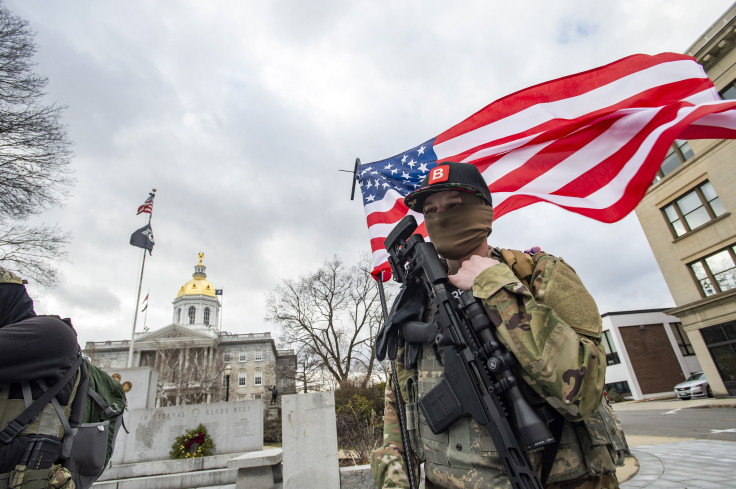
President-elect Donald Trump confirmed earlier this week that he plans on declaring a national emergency when he takes office in January, enabling him to use the U.S. military to carry out his heavily anticipated plan of mass deportations. However, as experts have explained, his planned use of armed forces is bound to face several legal hurdles, citing the fact that previous presidents have only been able to deploy soldiers in domestic territories in times of war.
Nevertheless, the Trump administration could find assistance for his plan in other armed organizations that patrol the border, as Wired reports that paramilitary groups along the in placer like Arizona are positioning themselves to support the incoming Trump administration's hardline immigration policies, including potential mass deportation efforts.
"We're in talks with a few different people," said Tim Foley of the Arizona Border Recon, a self-described "civilian patrol group. "We have a better lay of the land than the federal agents do."
Arizona Border Recon employs tracking methods, trail cameras, drones, and other surveillance tools to gather intelligence, which Foley believes could complement federal enforcement strategies. He noted that the group's volunteers have extensive experience patrolling the border and gathering real-time intelligence, which he views as critical for upcoming immigration actions.
The organization is hardly alone in their border activity, as Wired explains:
"Over the past two decades, vigilantes armed with guns and nativist rhetoric—and increasingly, with drones and high-tech trail cams—have acted with impunity, positioning themselves as authorities in borderlands in Arizona, New Mexico, and Texas, muddying the line between civilian and official, hunting down asylum seekers, and even taking groups of migrants 'into custody' before handing them over to the feds"
Thomas Homan, the incoming "border czar," recently acknowledged significant civilian interest in supporting these efforts in an interview with Fox News:
"There's a lot of good patriots. Thousands of retired agents, border patrol agents, retired military who have volunteered to help secure the border."
Veterans on Patrol (VOP), another border group based in Pima County, also expressed intent to continue operations to Wired, claiming their practices are rooted in combating trafficking and unlawful crossings. However, the group's activities have drawn scrutiny, with accusations of vigilantism and unauthorized actions, including sabotaging vehicles, interfering with humanitarian efforts and even making threats to the U.S. military.
Over the past two decades, border militias have become increasingly active, often operating in gray areas of legality. The prospect of tacit approval under Trump has raised questions about the potential overlap between civilian and official roles in border enforcement, with discussions in online forums suggest that some militia members are seeking formal recognition or deputization to assist with immigration enforcement.
The risk of paramilitary groups running amuck in the border is also rooted on experience from Trump's first term, as border militias such as The Oath Keepers flourished during the Republican's first administration, culminating in the infamous January 6 Capitol riot where many were arrested. The Proud Boys, another militia that gained notoriety during the first Trump term, has reportedly deployed to the border now, while smaller cells have also been reported to be seen looking for people who've made unauthorized border crossings.
© 2025 Latin Times. All rights reserved. Do not reproduce without permission.





